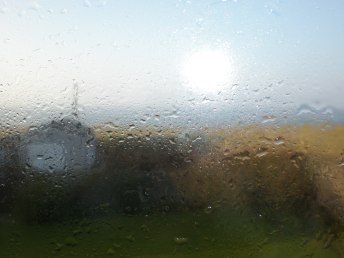Words, words, words.
– Hamlet, Act II, Scene 2
As I embark upon this exegetical project of mine, I feel I need to explain my approach, so as to avoid confusion down the line. It may be controversial, but that is the point: as a rule, church leaders are not controversial enough (at least, not in the right way) when “rightly dividing” the word. I say this from experience: too often, preaching is intended to tickle the eardrums, to tell people what they want to hear and send them back out to endure another week in the world. The idea of challenging them to encounter that world and allow that encounter to act as a reverse hermeneutic, itself shaping one’s interaction with scripture, never really comes into play.
What I’m talking about is not the controversy of standing on principle. It is the controversy of questioning the principles upon which we stand. The sacred cows. The pet doctrines. The things we yell about come election time. It is the controversy caused by challenging people to think beyond received wisdom, to see things in a new light.
So, here goes:
1) I will set aside entirely the language of “divine inspiration.” I have no problem with the notion that biblical authors were inspired by a love of God or belief in a certain idea of God, or that as a text it is an inspired work. All texts are inspired by a love of something, from poetry to treatises on computer coding. But this is as far as I will go. Beyond this, there be monsters. Not because I am daunted by supposed divine authority, but because if all people are to benefit from the positive teachings of Jesus (from Christians to Buddhists and back again), the slightest whiff of sectarianism will throw off the whole project. And what is talk of ultimate authority but code for spiritual imperialism?
2) This is not an exercise in demythologization. Myth is not in itself a bad thing. It is the vehicle whereby we interpret our world, meaning handed down through the generations. Myth is not the problem. The problem arises from treating myth as if it were fact. So, when it comes to miracle stories, it is not enough to simply dismiss them as false, because they are not. Of course, they are also not strictly true. Somewhere, nestled between literalism and metaphor, lies meaning. And meaning is what we’re after. Homiletical approaches to miracle stories often suffer not from too much interpretation, but too little. They are either taken at face value (this happened), or rejected at face value (this didn’t happen). This project is aimed at both extremes, in the hopes that their adherents might be encouraged to meet in the middle.
3) I will seek to redefine the doctrine of salvation in terms purely physical. This is one area in which most literalists wax blithely metaphorical. Somehow, feeding the hungry, healing the sick, and preaching good news to the poor throw off the shackles of biblical literalism and don the sublime clothing of allegory. Why? Because it’s easier to preach to someone than it is to actually reach out and touch them as people. So, we need a theology that encourages us to save what we can see before moving on to what we cannot. We have no business lyricizing the life beyond while life right here and now falls apart around us. No more fiddling while Rome burns.
4) With certain rare exceptions, I will be sticking to the Gospels (and possibly even some of the extra-canonical teachings of Jesus). I will not touch Revelation with a ten-foot pole: that hobby-horse has been pretty well beaten to death. As for Paul, well, we wouldn’t have most of the problems we have today were it not for him. (The rest of them, of course, were caused by Augustine.)
5) That I am arguing for the good in the New Testament should in no way be construed as a dismissal of the elements which might be more problematic. This is an attempt to offer one interpretation, and interpretation is always an act of dissection, deciding what to keep and what to set aside. To toss out the good because of the bad is unwarranted. This is why authority must be earned rather than assumed: that which is patently unjust must never be accepted as authoritative. And that which passes such things off under the guise of authority should always be set aside.
At the end of the day, this is really about those I’ve left behind. Call it an apology for bailing out before the ship started to sink. I sometimes think that, had I been less exhausted, I might have stayed on board. To these people, I say: there are other ways to live your faith, ways that are contributory rather than retributive, ways that recognize the meaninglessness of “in but not of” as the foundation of a moral code.
Even if you do ascribe to the Bible an authority that I do not, these lessons apply. There are other modes of interpretation that deserve at least a glance, a chance to convey something much more akin to divine love than the image of a jealous God ever could. An approach that allows us to open the door to Jesus without slamming it shut on everyone else.
I am the Toad, perched on a fence post, and this is what I see.



